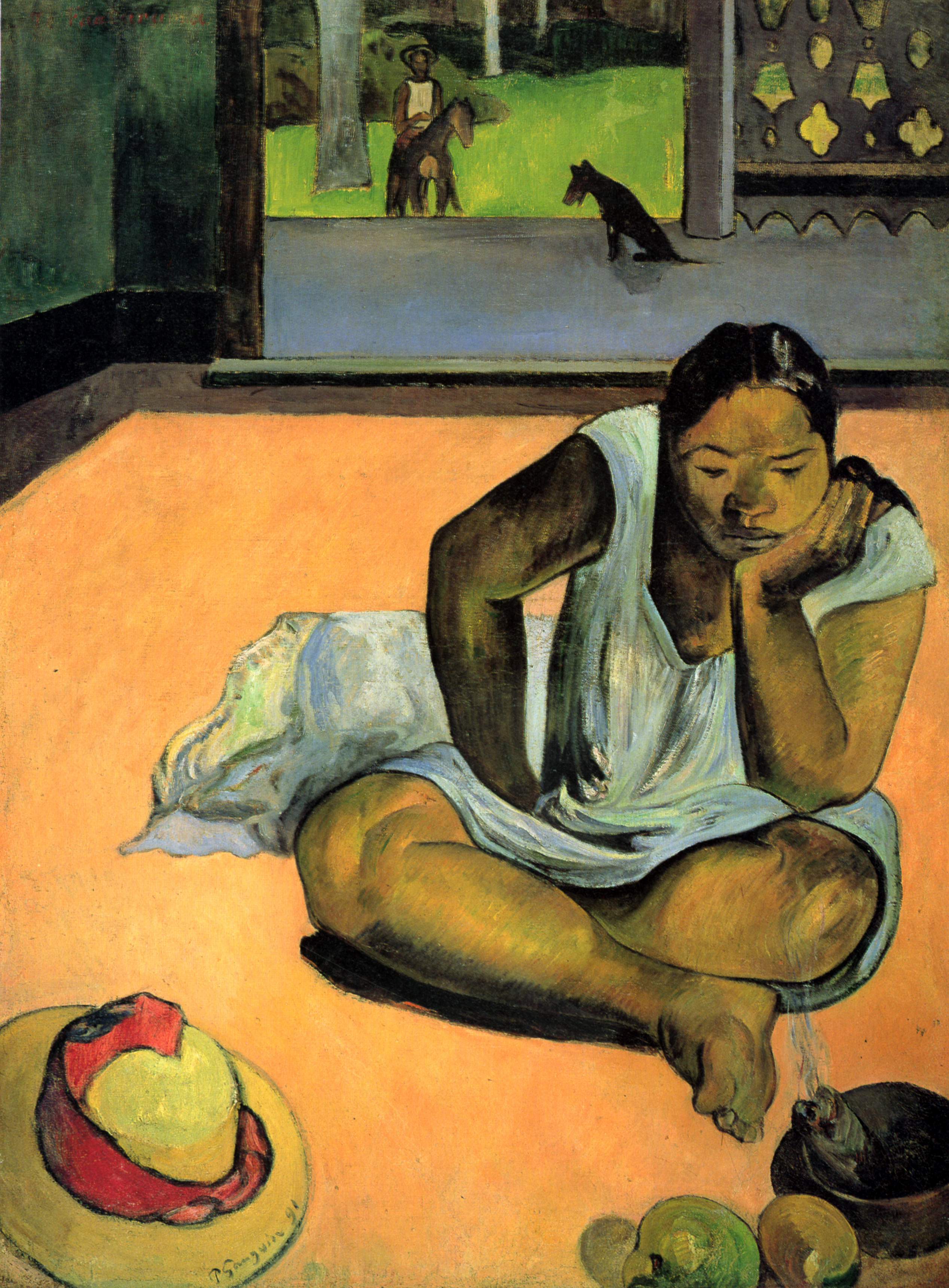Aborto: religião e saúde
por Paola Goldenbaum
(*TEXT IN ENGLISH IS BELOW)
Começo este artigo afirmando que sou a favor da legalização do aborto no Brasil. A partir disto, o leitor já pode esperar que listarei aqui minhas razões para tal posição. No entanto é preciso esclarecer primeiro que ninguém, em sã consciência, alegra-se com o aborto. Esta é uma difícil decisão tomada por mulheres em circunstâncias específicas. E esta escolha é sempre uma última opção, sendo a conscientização para os métodos contraceptivos e para o planejamento familiar as medidas primárias de atenção à saúde da mulher que devem ser adotadas pelo governo, como a propagação da informação e a distribuição de anticoncepcionais em comunidades onde o acesso a estes meios é restrito.
Nós, como sociedade, devemos parar de encarar o assunto como tema religioso e tomá-lo como uma questão de saúde pública, pois os dados da OMS (Organização Mundial da Saúde) mostram que a quantidade de abortos é igual em países onde a prática é legalizada e em países onde ela ainda é ilegal, a diferença é que no último caso há uma quantidade alarmante de mulheres que perecem durante a prática cirúrgica. Portanto, há mais vidas sendo perdidas pela criminalização do procedimento do que pela sua permissão.
Mas afinal, por que o aborto ainda é marginalizado no Brasil? Por força das Igrejas Cristãs? – Em parte. Mas também porque o status de ilegalidade do aborto o torna um comércio lucrativo para diversos setores da economia (clínicas médicas particulares que fazem o trabalho clandestino, por exemplo).
Sejamos realistas: as mulheres com poder aquisitivo realizam o aborto independentemente de ser legal ou ilegal no Brasil. Há clínicas de alto padrão que fazem o procedimento por um valor abusivo, e há as mulheres que até preferem fazer o aborto nos EUA, Canadá ou Europa, onde ele é permitido. A lei afeta apenas as camadas mais carentes da população brasileira, mulheres que não têm acesso à saúde de qualidade, tampouco à informação e, quem dirá, às mencionadas clínicas e viagens ao exterior. Estas mulheres estão à mercê de clínicas clandestinas de baixo custo que realizam o procedimento de maneira pouco higiênica e nada regulamentada, sendo que em muitos casos, nem ao menos há médicos no local. Resumindo, o aborto existe no Brasil, é praticado em todas as esferas da sociedade e sua ilegalidade faz apenas selecionar quem vive e quem morre – e o que dita tal seleção é a classe socioeconômica da mulher.
Visto que o aborto é praticado igualmente sendo ele legalizado ou não, basta um pouco de empatia e razão para desejarmos que as mulheres que – por seus mais variados motivos – optam por esta prática tenham o atendimento e o suporte dignos que vemos nos países onde o aborto é previsto em lei. Uma mulher que escolhe o aborto está fragilizada, independentemente do motivo que a levou a esta decisão. Além disso, muitas vezes essa mulher foi agredida, está sozinha em sua jornada, não tem recursos financeiros nem mesmo para si. Dadas as estimativas fornecidas pela OMS, pode-se inferir com segurança que a legalização do aborto no país não aumentará o número de vezes que o procedimento ocorre, mas humanizará o processo pelo qual a mulher passará, pois haverá apoio psicológico, acesso à assistência social – que mostrará caminhos possíveis independentemente da decisão final da mulher – e a cirurgia se dará em hospitais com atendimento médico regulamentado.
Sendo assim, enfatizo que nossa luta pela legalização, em nenhum momento defende que o aborto seja feito indiscriminadamente ou que seja feito com maior frequência. Lutamos, sim, pela dignidade da mulher. Sabemos ainda que os casos de aborto, em sua extensa maioria, passam por violência sexual e abandono paterno. Mulheres violentadas e adolescentes abandonadas por seus parceiros (e em muitos casos por suas famílias), traumatizadas e sem condições financeiras de atender as demandas da maternidade, somam a maior parte dos casos de aborto no país. É chegado o momento de ter compaixão e admitir que as mulheres precisam ter o direito à escolha.
Para os religiosos, dedico este parágrafo: o aborto não foi previsto na Bíblia. A Bíblia Judaica (para os cristãos o Antigo Testamento), o documento de legislação da fé judaica, foi adotado também pelos cristãos, unindo-se ao Novo Testamento (este, um documento de revelação e sem funções legislativas). Devemos tomar então a Bíblia Judaica como parâmetro neste caso. E ela não menciona o aborto. Portanto ele não é proibido e tampouco permitido a princípio. O que há é clara ênfase sobre a importância da preservação da vida. Entretanto, enquanto os líderes religiosos e congressistas brasileiros se utilizam destas passagens em apelo às camadas conservadoras da população, “esquecem-se” de que tais trechos são tradicionalmente interpretados em favor da mulher – ser humano já completo – em detrimento do feto que na tradição religiosa ainda é apenas parte da mulher, não devendo colocar a vida dela em risco. E para os “entusiastas” de Israel, uma informação interessante: este país tem uma das legislações de aborto mais progressistas do mundo, justamente pelo amparo religioso – baseado na Bíblia Judaica – de que a vida da mulher não deve ser colocada em risco pela gravidez sob nenhuma circunstância, nem mesmo se a razão para a escolha do aborto for estresse psicológico que ela sofrerá com a continuação de tal gravidez.
Deixo aqui registrados meus pensamentos e as profundas razões por detrás deles, esperando que o leitor possa extrair daqui empatia pela vida da mulher e a humanidade necessária para mudarmos a forma como encaramos esta falha tão séria em nossa legislação. Aos que lutam pelavida, como eu, lembremos primariamente da vida que gera as próximas vidas.
Paola Goldenbaum é estudante de Pedagogia e ativista social, especialmente nas áreas de Direitos da Mulheres e Acesso à Educação. É membra dos grupos ‘Mulheres da Resistência no exterior’ e ‘Resistência Democrática Judaica’.
(Imagem acima: ‘Te Faaturuma’, de Paul Gauguin)
***
Abortion: Religion and Health
by Paola Goldenbaum
I begin this article by saying that I am in favor of the legalization of abortion in Brazil. Therefore, the reader can already hope that I will list here my reasons for such a position. However, I must first clarify that no one, in good conscience, rejoices in abortion. This is a difficult decision made by women in specific circumstances. And this choice is always the last option, being the awareness for contraceptive methods and for family planning the primary measures of concern to women’s health that should be adopted by the government, such as the spread of information and distribution of contraceptives in communities where the access to these means is restricted.
We, as a society, must to stop taking abortion as a religious matter and take it as a public health matter, as data from the World Health Organization shows, the number of abortions is the same in countries where the procedure is legalized and in countries where it is still illegal, the difference is that in the latter case there is an alarming number of women who perish during and after the surgery. Hence, there are more lives being lost by the criminalization of the procedure than by its permission. But after all, why is abortion still marginalized in Brazil? Because of the Christian Churches? – Partly. But also because the illegality status of abortion makes it a profitable trade for various sectors of the economy (private medical clinics doing it clandestinely, for example).
Let us be realistic: women with purchasing power undergo abortion regardless of whether it is legal or illegal in Brazil. There are high-standard clinics that do the procedure for an obscene amount of money, and there are women who even prefer having the abortion in the US, Canada or Europe where it is allowed. The law affects only the poorest layers of the Brazilian population, women who do not even have access to quality health care, nor to information, nor to the aforementioned clinics and trips abroad. These women are at the mercy of low cost clandestine clinics that perform the procedure in an unhygienic and unregulated way, and in many cases, there are not even doctors on the premises. In short, abortion exists in Brazil, it is practised in all spheres of society and its illegality only selects who lives and who dies – and what dictates such selection is the socio-economic class of the women.
Since abortion is practised likewise whether or not it is legalized, some empathy and reason is enough to wish that women who – for their many reasons – opt for this procedure have the dignified care and support we see in countries where abortion is provided by law. A woman who chooses abortion finds herself frail regardless of the reason that led to this decision. In addition, this woman has often been violated, is alone on her journey, has not even financial resources for herself. Given the estimative provided by the WHO, it can be safely inferred that the legalization of abortion in the country will not increase the number of times the procedure occurs, but will humanize the process by which the woman goes through, as there will be psychological support, access to social workers – who will show possible paths regardless of the woman’s final decision – and the surgery will take place in hospitals with regulated medical care. Therefore, I emphasize that our struggle for legalization does not at any time advocate that abortion should be done indiscriminately or that it should be done more frequently. We do fight for the dignity of the woman.
We also know that abortion cases, in their vast majority, passes by sexual assault and paternal abandonment. Violated women and adolescents abandoned by their partners (and in many cases by their families), traumatized and unable to meet the demands of motherhood, account for most abortion cases in the country. It is time to have compassion and admit that women need to have the right to choose.
For religious people, I dedicate this paragraph: abortion was not predicted in the Bible. The Jewish Bible (for Christians the Old Testament), the document of legislation of the Jewish faith, was also adopted by Christians, who added the New Testament (the latter, a document of revelation and without legislative functions). We should then take the Jewish Bible as a parameter. And it does not mention abortion. So it is not forbidden and not allowed at first. What appears is a clear emphasis on the importance of preserving life. However, while religious leaders and Brazilian congressmen use these passages in appeal to the conservative strata of the population, they forget that such passages are traditionally interpreted in favour of the women – a human being already complete – in detriment of the fetus that, in the religious tradition, is still only part of the woman and should not put her life at risk. For Israel ‘enthusiasts’, an interesting information: the country counts on one of the most progressive abortion laws in the world, precisely because of religious support – based on the Jewish Bible – that a woman’s life should not be jeopardized by pregnancy under any circumstances, not even if the reason for choosing abortion is the psychological stress that she will suffer with the continuation of such pregnancy.
I leave here my thoughts and the deep reasons behind them, hoping that the reader will take from it empathy for the life of the women and the humanity necessary to change the way we face this serious flaw in our legislation. To those who strive for life, as I do, let us remember primarily the life that generates the next lives.
Paola Goldenbaum is a student of Pedagogy and a social activist, especially in the areas of Women’s Rights and Access to Education. She is a member of the groups ‘Women of Resistance abroad’ and ‘Democratic Jewish Resistance’.
(Image above: ‘Te Faaturuma’, by Paul Gauguin)
***




Excelente reflexão
Otimo artigo Paola